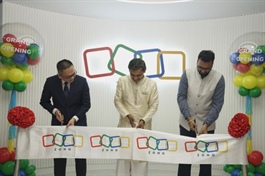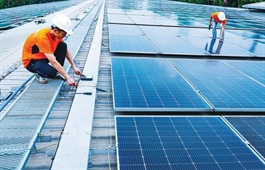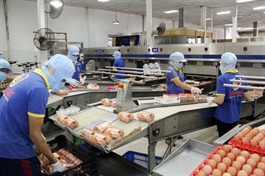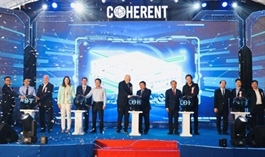Battery network can allay concerns
Battery network can allay concerns
Expanding the network of battery-swapping stations could resolve concerns about a charging network shortage for electric vehicles.
Selex Motors, a Vietnam-based electric vehicle (EV) startup, has launched a promotion programme for battery-swapping services. It follows announcements regarding Hanoi banning all fossil fuel motorbikes and mopeds from the city centre from July 2026, as part of a sweeping new effort to tackle worsening pollution.
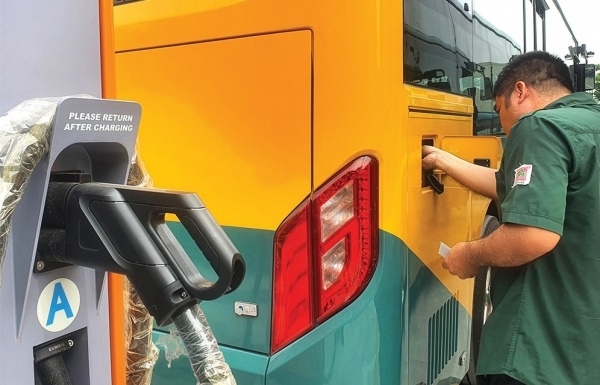
Cities are proposing new traffic infrastructure planning, Photo: Le Toan |
The promotion programme is applied to Selex Motors’ network of battery-swapping stations, dubbed battery ATMs, in multiple cities across Vietnam.
The policy for a battery exchange service package is for first-year customers. When customers buy a car and sign a 12-month battery exchange service contract with the company, customers will receive a 20 per cent discount on the total value of the battery service bill each month (before VAT).
Ride-hailing drivers for Be Group, who buy a car and sign a 12-month battery exchange service contract, will receive a 30 per cent discount before VAT.
The company aims to persuade consumers to make the switch from conventional gasoline-powered cars to EVs by offering a convenient and economically viable solution for battery charging. The introduction of these innovative battery ATMs in various Vietnamese cities marks a significant step towards sustainable transportation practices. Instead of dispensing cash, these stations provide fully charged EV batteries.
“Instead of having to charge the battery for up to eight hours, electric motorbike users only need a few minutes to take the empty battery from the vehicle to exchange it for a fully charged battery. Throughout Hanoi and Ho Chi Minh City, people can easily see Selex’s battery swapping stations. When there is a battery swapping station, electric motorbike drivers can travel hundreds of kilometres without wasting time charging because one Selex battery pack is equal to six conventional batteries,” said Nguyen Huu Phuoc Nguyen, CEO of Selex Motors.
Nguyen added that Selex’s battery service package will always be adjusted to be cheaper than petrol prices, so it ensures that the operating cost of EVs will be more economical.
According to Le Thanh Hai, director of the Centre for Applied Economic Consulting under the Ho Chi Minh City Institute for Development Studies (HIDS), the city’s charging network remains in its infancy, driven mainly by private enterprises.
“Currently, the development of EV charging infrastructure in Ho Chi Minh City is still very limited and fragmented. Most stations are installed by private investors, with no public projects implemented so far,” Hai noted.
He also noted that the absence of a unified and comprehensive plan has led to charging stations being located far from key areas such as rest stops, logistics hubs, food service locations, and residential zones.
Compounding the issue, the city’s existing power grid faces mounting pressure, especially with the deployment of ultra-fast DC chargers with capacities of up to 350kW, which risk overloading the system during peak hours.
To address these challenges, HIDS has proposed that Ho Chi Minh City accelerate static traffic infrastructure planning, expand parking space, and direct public investment into the charging station network.
HIDS also recommends a tiered model: fast-charging stations at major hubs; high-speed battery swap stations at logistics hotspots; and slow chargers installed at residential complexes for overnight use.
“By 2028, the city aims to establish around 3,000 charging and battery-swapping points, prioritising locations such as fuel stations, public car parks, shopping centres, and parks,” he added.
Meanwhile, carmakers and battery producers are racing to enhance charging efficiency and safety. Battery manufacturer CATL recently unveiled its next-generation Shenxing battery, capable of delivering a 520km range with just five minutes of charging, comparable to refuelling an internal combustion engine vehicle. The company previously committed $2.6 billion to research and development, aimed at improving charging speed and energy efficiency.
Solid-state batteries, which eliminate flammable liquid electrolytes, are also gaining attention for their higher energy density and reduced fire risk. Toyota, BMW, and US-based startup QuantumScape are investing heavily in this technology, with commercial rollout expected by the end of the decade. McKinsey & Company projects solid-state batteries could capture 10 per cent of the global market by 2030.
On the software front, battery management systems are becoming a crucial layer of innovation. Automakers such as Tesla and Hyundai are integrating AI-based systems to optimise charge rates, manage real-time thermal performance, and extend battery lifespan by up to 30 per cent.
According to Assoc. Prof. Hoang Anh Le, head of Environmental Management at the University of Science under the Vietnam National University in Hanoi, battery-swapping should be a core strategy in Vietnam’s EV infrastructure roadmap.
“Instead of focusing on home chargers, we should promote standardised battery-swapping stations, similar to petrol refuelling, which are faster and more convenient,” he said.
He also emphasised leveraging existing petrol station infrastructure by collaborating with station owners to retrofit sites into charging or battery-swapping points. “This approach will reduce the cost of new infrastructure and improve safety oversight,” he added.
- 14:30 29/07/2025





